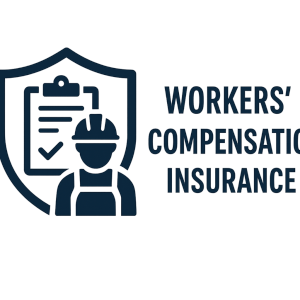In the intricate landscape of workforce management, accurate payroll classification stands as a critical component for Georgia guard firms aiming to maintain compliance and control costs. Misclassification of employees not only jeopardizes the integrity of payroll systems but also exposes companies to significant financial risks, particularly through costly workers’ compensation errors. This article delves into the importance of precise employee classification, highlighting best practices and regulatory considerations tailored to the security industry in Georgia. By understanding and implementing accurate payroll classifications,guard firms can safeguard their operations against avoidable liabilities,ensuring both legal compliance and financial stability.
Table of Contents
Understanding Payroll Classification and Its Impact on Workers Comp Rates in Georgia Guard Firms
In Georgia’s security industry, precise payroll classification is paramount to maintaining accurate workers’ compensation insurance rates. Guard firms often deal with varying job roles-from armed guards to administrative staff-each carrying distinct risk profiles and classification codes assigned by the National Council on Compensation Insurance (NCCI).Misclassifying employees, such as billing administrative roles under higher-risk guard codes, can inflate premiums unnecessarily, while underestimating risks can leave your firm exposed to compliance issues and potential fines.key factors impacting payroll classification include:
- Type of security service performed (armed,unarmed,investigative)
- Employee job duties and work locations
- Proper allocation of payroll for part-time and contract workers
| Payroll Category | Example Job Roles | Typical WC Rate Range (per $100 payroll) |
|---|
| Armed Guards | Armed patrol,Security Officers | $3.50 – $7.00 |
| Unarmed Guards | Gatekeepers, Event Security | $2.00 - $4.50 |
| Clerical Staff | Receptionists, Admin Assistants | $0.20 – $0.50 |
By adopting detailed payroll tracking systems and regularly reviewing employee classifications,Georgia guard firms can avoid costly misclassifications that distort workers’ compensation rates. This not only optimizes operational costs but also strengthens compliance with state regulations, safeguarding the firm’s reputation and financial health.
Identifying common payroll Classification Errors and Their Financial Consequences
Misclassifying employees and self-reliant contractors is one of the most frequent payroll errors within Georgia guard firms. Failing to properly distinguish job roles such as full-time guards, part-time staff, and subcontractors can lead to misreported payroll figures, driving up workers’ compensation premiums unexpectedly. These errors not only inflate your insurance costs but can also trigger audits, fines, and retroactive premium assessments that severely impact cash flow. Moreover, overlooking overtime pay classifications or categorizing positions under incorrect job codes isolates your firm from compliant payroll practices and industry standards, exposing your business to legal liabilities.To put the financial risks in outlook, consider this simple breakdown of common classification errors and their typical consequences:
| Error Type | Financial Impact | Audit Risk |
|---|
| Independent Contractor Misclassification | fines up to $10,000 per incident, premium retrocharges | High |
| Improper Overtime Classification | Increased payroll liabilities, back pay | Moderate |
| Incorrect Job Code Assignment | Inflated workers’ comp rates by 15-25% | Moderate |
Proactive payroll classification ensures accurate insurance cost allocation and shields your guard firm from disruptive financial penalties. Employing thorough internal audits and leveraging specialized payroll software tailored to security services can considerably reduce these costly errors.
Implementing Best Practices for Accurate payroll Reporting in Security Companies
Maintaining precise payroll classification is paramount for security firms in georgia to prevent costly workers’ compensation miscalculations. Many companies falter by inaccurately categorizing their guards’ roles, leading to inflated insurance premiums or compliance issues. To mitigate these risks, companies must implement stringent auditing techniques, including:- Regular job duty reviews to ensure alignment with payroll codes
- Automated payroll systems that flag discrepancies in classifications
- Internal training on legal classification standards specific to Georgia’s workers’ compensation rules
Additionally, establishing consistent interaction with insurance advisors and payroll providers helps firms stay abreast of evolving regulatory requirements. Below is a summary table illustrating key classification categories and their typical risk multipliers, designed to aid in better decision-making:
| Classification Code | Description | Risk Multiplier |
|---|
| 7720 | Armed Security Guards | 2.3 |
| 7720 | Unarmed Security Guards | 1.5 |
| 7720 | alarm responders | 1.9 |
Leveraging Technology and expert Consultation to Minimize Workers comp risks
Utilizing advanced technology and expert consultation is pivotal in reducing workers’ compensation risks within Georgia guard firms.Implementing payroll software integrated with workers’ comp classification modules ensures precise employee categorization, thus minimizing costly misclassifications. These solutions automatically update classification codes according to state regulations, facilitating compliance and reducing human error. Moreover, data analytics tools enable firms to monitor injury trends and pinpoint high-risk job roles, allowing proactive risk management aligned with evolving industry standards.
Expert consultations add significant value by providing tailored risk assessments and actionable recommendations. Collaborating with workers’ comp specialists or insurance consultants can uncover subtle classification nuances unique to security personnel, such as differentiating between armed and unarmed guards or contractual versus full-time employees. Consider the following strategic advantages:
- customized classification guidance aligned with Georgia’s specific workers’ comp rules
- Audit preparation and review to preempt costly disputes
- Ongoing education for payroll and HR teams on regulatory updates
| Technology | Benefit | Expert Role |
|---|
| Payroll Automation | accurate employee data and real-time updates | System configuration and compliance checks |
| Risk Analytics | Identifies high-risk classifications | Interprets data for targeted risk mitigation |
| Regulatory Alerts | Ensures updated classification standards | Provides tailored policy advice |
Q&A
Q&A: Accurate Payroll Classification – Avoid Costly Workers’ Comp Errors in Georgia Guard Firms
Q1: Why is accurate payroll classification critical for security guard firms in Georgia?
A1: Accurate payroll classification ensures that all employee wages are reported correctly according to job duties and risk levels. For security guard firms in Georgia, precise classification directly impacts workers’ compensation premiums. Misclassification can lead to underpayment of premiums, triggering costly audits, fines, and increased liability exposure.
Q2: What are the common payroll classification errors seen in Georgia’s security industry?
A2: Common errors include misclassifying guard supervisors as lower-risk guards, failing to seperate payroll for armed versus unarmed guards, and inaccurately reporting part-time versus full-time employee wages. These errors distort the risk profile and can result in significantly higher workers’ comp costs after state audits.
Q3: How does workers’ compensation classification effect insurance premiums for Georgia guard firms?
A3: Workers’ compensation premiums are calculated based on classification codes that reflect an employee’s job duties and associated risk levels. Higher-risk classifications, such as armed guards, carry higher premium rates. Accurate classifications help ensure firms are charged appropriately without overpaying or risking penalties for underreporting.
Q4: What steps can security guard businesses take to ensure accurate payroll classification?
A4: Firms should maintain detailed job descriptions and regularly review employee duties. Collaborating with payroll providers familiar with Georgia workers’ comp regulations is critical. Periodic internal audits and consulting insurance professionals can also help identify and correct misclassifications proactively.
Q5: What are potential consequences of misclassifying payroll in terms of workers’ compensation?
A5: consequences include premium audits with required back payments, interest charges, fines, and in severe cases, legal penalties. Misclassification can also damage a firm’s reputation and increase insurance risk exposure, ultimately affecting profitability and operational stability.Q6: Are there resources available for Georgia guard firms to assist with classification compliance?
A6: Yes. The Georgia State Board of Workers’ Compensation and the National association of Security Companies (NASCO) provide guidelines and support. Additionally, working with experienced insurance brokers and legal advisors specializing in workers’ comp can greatly reduce classification errors.
Q7: How frequently enough should firms review their payroll classifications?
A7: Firms should conduct a thorough review of payroll classifications annually or whenever there are significant changes in workforce composition or job roles. regular reviews help keep classifications aligned with current employee duties and compliance requirements.
By prioritizing accurate payroll classification, Georgia security guard firms can avoid costly workers’ comp errors, safeguard their financial health, and maintain compliance with state regulations.
In retrospect
precise payroll classification is essential for Georgia guard firms aiming to mitigate the risk of costly workers’ compensation errors. By maintaining accurate records and adhering to classification guidelines, businesses can ensure compliance, optimize premium costs, and safeguard their financial stability.Investing in thorough payroll auditing and leveraging expert resources not only protects your firm from potential liabilities but also reinforces a culture of accountability and professionalism. Prioritizing accurate classification today is a strategic step toward sustainable growth and operational excellence in the competitive security industry.
“This content was generated with the assistance of artificial intelligence. While we strive for accuracy, AI-generated content may not always reflect the most current information or professional advice. Users are encouraged to independently verify critical information and, where appropriate, consult with qualified professionals, lawyers, state statutes and regulations & NCCI rules & manuals before making decisions based on this content.









